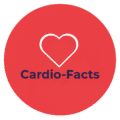
Introduction
Heat and heart health are closely linked — especially as summers become hotter due to climate change. Extreme heat is more than uncomfortable — it can be dangerous, particularly for the heart. Heat waves are associated with a measurable rise in cardiovascular events, especially among older adults, people with pre-existing heart conditions, and other vulnerable individuals. Understanding how heat affects the cardiovascular system is key to staying safe and healthy during the hottest months of the year.
How Heat Puts Stress on the Heart
When exposed to high temperatures, the human body triggers various mechanisms to regulate its internal temperature. The cardiovascular system plays a leading role in this adaptation:
- Peripheral vasodilation: Blood vessels widen to allow more blood to flow near the skin, promoting heat loss.
- Increased heart rate: The heart pumps faster to maintain blood pressure despite vasodilation.
- Dehydration: Sweating leads to fluid loss, reducing blood volume and increasing blood viscosity — making the heart work harder.
These adjustments, while necessary, can place significant strain on the cardiovascular system, especially in people with heart disease.
Who’s at Higher Risk During Heat Waves?
Not everyone reacts the same way to heat. Several groups are particularly vulnerable to cardiovascular complications:
- Older adults: With diminished thermoregulation and frequent medication use.
- People with heart failure: Their heart may not handle volume shifts or increased demand.
- Patients taking diuretics or beta-blockers: These drugs can impair the heat stress response.
- Those with hypertension or arrhythmias: Heat can destabilize pressure control and trigger acute events.
Other at-risk individuals include people with chronic kidney disease, diabetes, or reduced mobility.
What the Science Says: Cardiovascular Events and Heat
Scientific research strongly links extreme heat exposure with a higher incidence of cardiovascular emergencies.
A 2022 meta-analysis published in The Lancet Planetary Health found that for every 1°C rise above a critical threshold, the risk of cardiovascular mortality increases by 1–3%.
🔗 Source: Zhao Q, Guo Y, Ye T, Gasparrini A, Tong S, et al. Global, regional, and national burden of mortality associated with non-optimal ambient temperatures from 2000 to 2019: a three-stage modelling study. The Lancet Planetary Health. 2021;5(7):e415–e425. https://doi.org/10.1016/S2542-5196(21)00149-3
The most common cardiovascular conditions seen during heat waves include:
- Acute heart failure exacerbations
- Heart attacks (myocardial infarctions)
- Ischemic or hemorrhagic strokes
- Serious arrhythmias
- Sudden cardiac death
Urban areas may experience amplified risk due to the urban heat island effect.
Warning Signs to Watch For
During extreme heat, it’s important to recognize early symptoms of cardiovascular distress:
- Shortness of breath, even without exertion
- Irregular heartbeat or palpitations
- Unusual fatigue or dizziness
- Swelling in the legs or ankles
- Confusion or fainting spells
If you experience any of these symptoms — especially if you have a heart condition — seek medical attention without delay.
How to Protect Your Heart in Hot Weather
Here are practical steps you can take to reduce cardiovascular risk during hot weather:
- 💧 Stay well-hydrated by drinking water regularly, even if you’re not thirsty.
- 🕒 Avoid outdoor activity during the hottest hours (11 a.m. – 5 p.m.).
- ❄️ Cool indoor environments to 75–78°F (24–26°C) using fans or AC.
- 👕 Wear light clothing made of breathable fabrics.
- 🚫 Limit alcohol and caffeine, which increase dehydration.
- 📈 Monitor blood pressure more frequently if you’re hypertensive.
- 💊 Do not adjust medications on your own — always consult your doctor.
If you live in a region prone to heat waves or plan to travel during summer, have a prevention plan in place with your healthcare provider.
Conclusion
Heat isn’t just a seasonal nuisance — it’s a serious cardiovascular stressor. For people with heart conditions, high blood pressure, or chronic illnesses, the combination of dehydration, increased heart workload, and thermal stress can be dangerous.
Fortunately, by staying informed and adopting a few smart habits, it’s entirely possible to enjoy summer without compromising your heart health.
💙 Take charge of your heart health!
Subscribe to our free newsletter for expert tips and get your complimentary guide “7 Proven Tips to Protect Your Heart After 40.”
👉 Join now
⚠️ Disclaimer: The content on Cardio-Facts is for informational and educational purposes only and does not constitute medical advice. Always consult a qualified healthcare professional regarding your health. Read our full disclaimer and legal policies.
